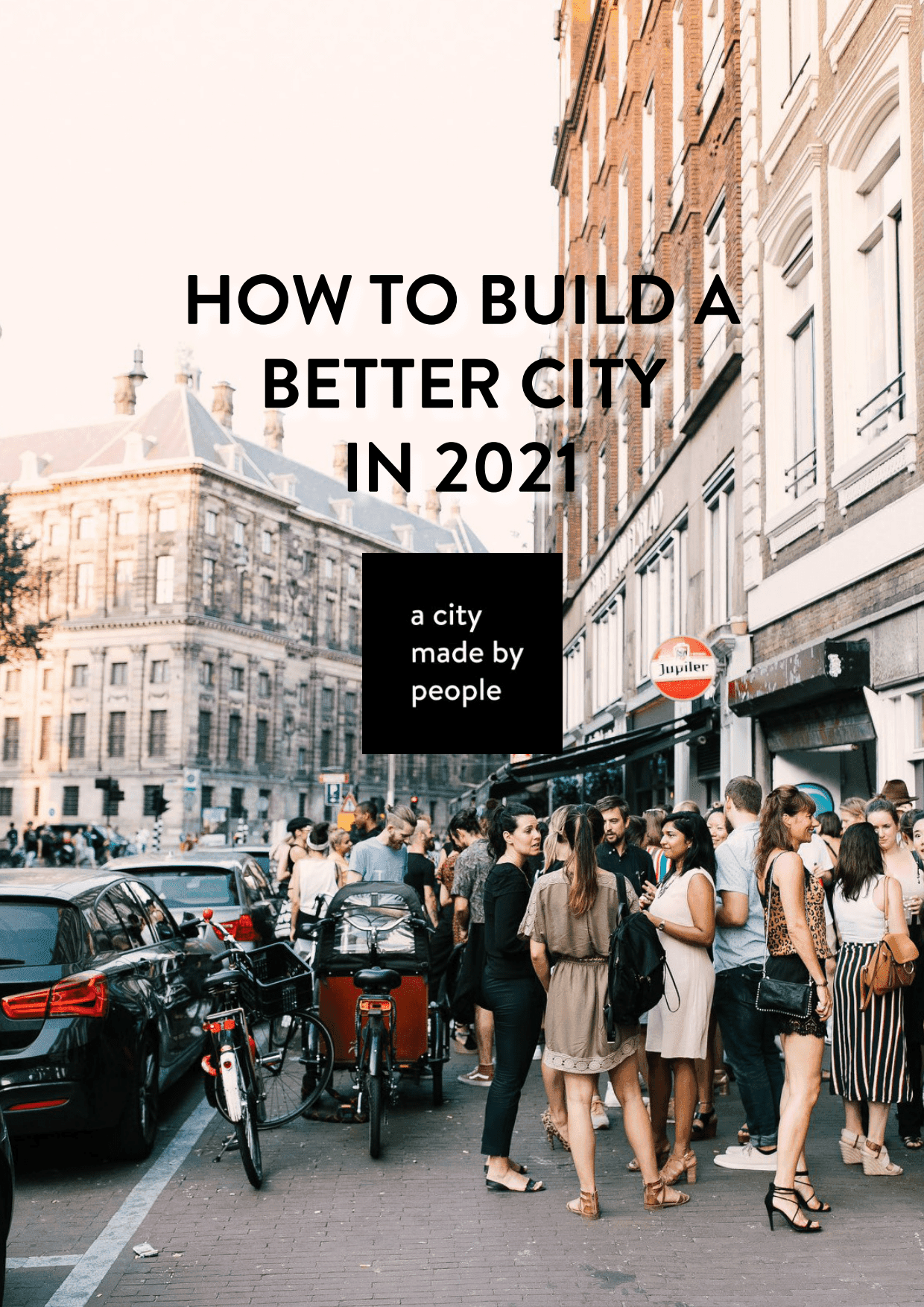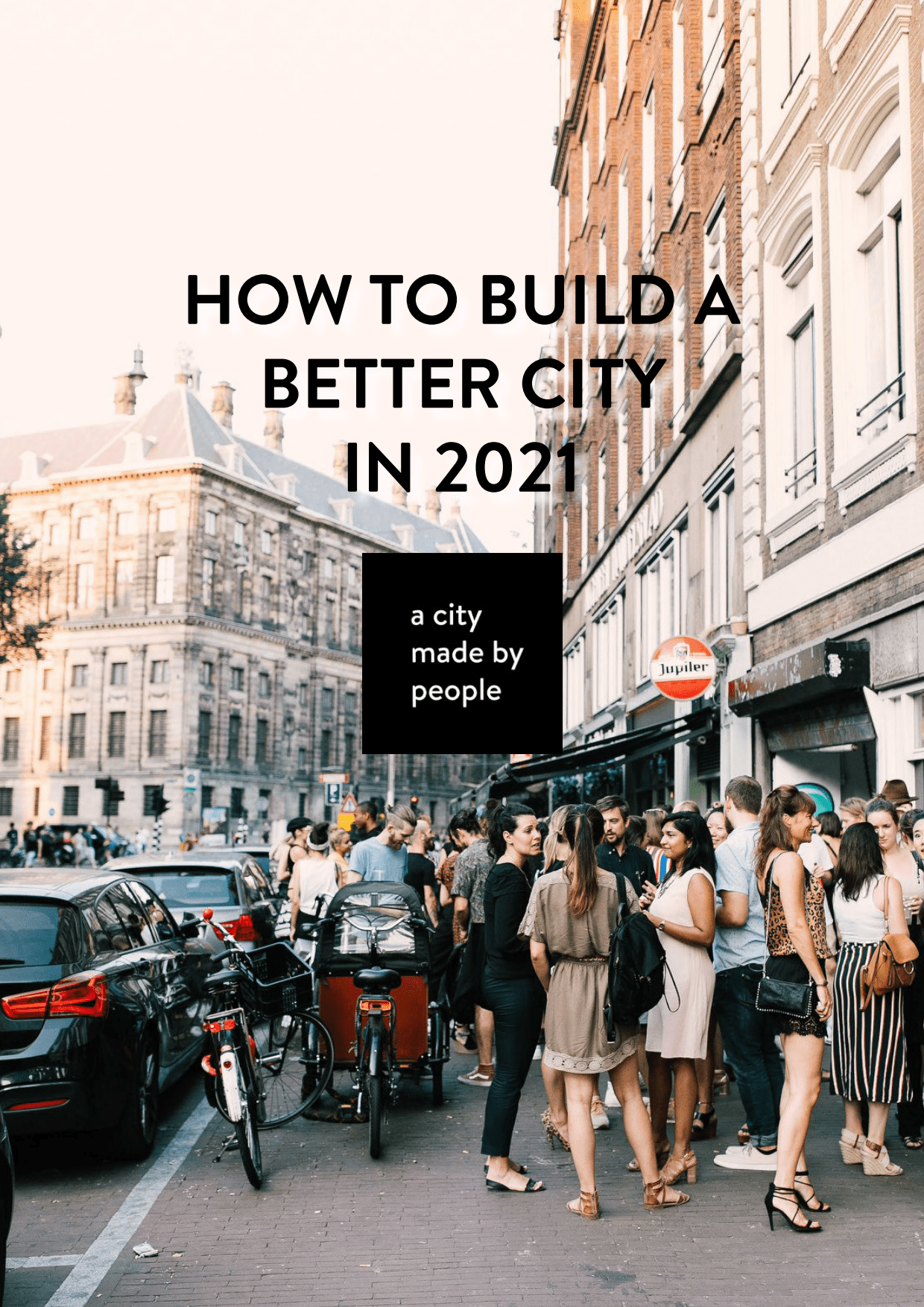AI-Generated Summary
Context of the Publication
The document titled "How to Build a Better City in 2021" was created by a collaborative group of urban thinkers and organizations under the initiative "A City Made By People." It emphasizes the urgent need for cities to rethink their infrastructures and urban environments in light of the lessons learned during the COVID-19 pandemic. The publication features contributions from several influential voices in urban planning and sustainability.
Rethinking Urban Spaces
The publication highlights the necessity for cities to move away from prioritizing technology and economic growth at the expense of community well-being. It argues that cities must be designed to foster happiness and inclusivity, with a focus on creating environments that cater to the needs of all citizens, irrespective of their age, ability, or background. The call for a more intersectional and feminist vision in urban planning is emphasized, reflecting the diverse voices of minorities advocating for systemic change.
Promoting Active Transportation
A significant focus is placed on the transformation of urban mobility. The text advocates for the reduction of car-dominated spaces and the promotion of walking and cycling, which not only enhances community interaction but also contributes to environmental sustainability. The concept of the "15-minute city" is introduced, where essential services should be accessible within a 15-minute walk, cycle, or public transport ride, fostering a sense of community and reducing reliance on private vehicles.
Sustainable Urban Development
The authors stress the importance of green urban spaces for climate adaptation and biodiversity. They propose transforming unused areas into parks and community gardens, which can improve urban resilience and well-being. The integration of nature-based solutions in urban planning is presented as a viable strategy for managing urban flooding and enhancing the overall quality of life in cities.
Community Engagement
Building resilient communities is emphasized as crucial for long-term sustainability. The publication suggests that cities should invest in fostering connections among their residents, promoting kindness and community support. It outlines the need for cities to facilitate opportunities for residents to engage in community-building activities that enhance social cohesion.
Local Food Initiatives
The rise of local food initiatives during the pandemic is highlighted as a positive trend. The publication calls for the establishment of integrated food policies that prioritize local producers and encourage direct community engagement with food systems. This shift not only strengthens local economies but also enhances food security and fosters a sense of community.
Infrastructure for Bicycles
The need for improved bicycle culture and infrastructure is another critical point raised. The authors advocate for cities to prioritize cycling by creating dedicated bike lanes and encouraging bicycle subscriptions as a means to reduce traffic congestion and pollution. This approach aims to create healthier, more sustainable urban environments.
Respecting Cultural Heritage
The document concludes by stressing the importance of respecting the historical and cultural narratives of cities. It advocates for preserving the stories and heritage that shape urban environments, as this contributes to a city’s identity and fosters a sense of belonging among its residents. This publication serves as a comprehensive guide for urban planners, policymakers, and citizens interested in creating more sustainable, inclusive, and vibrant urban spaces across Europe and beyond.

